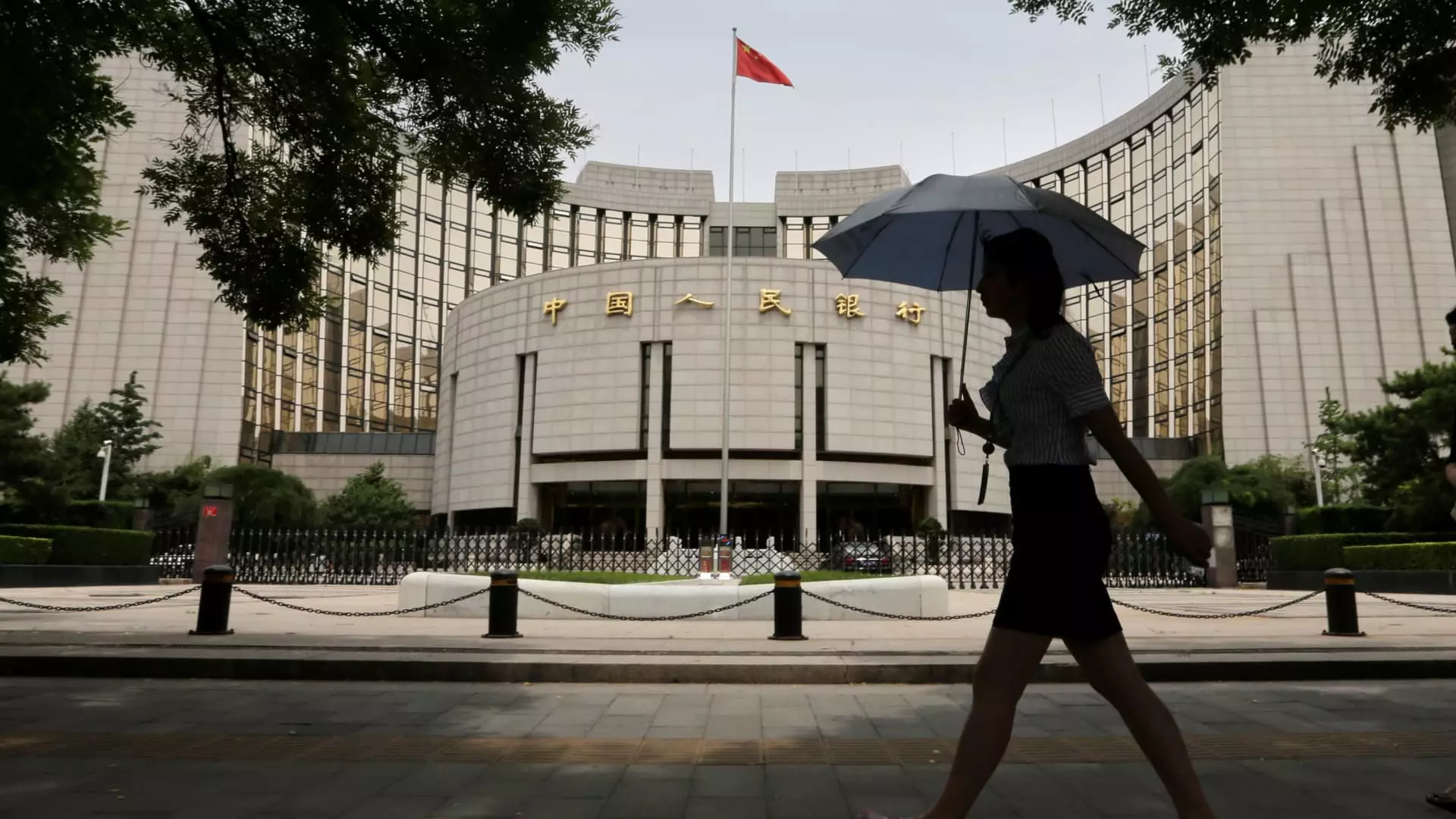As the U.S. Federal Reserve prepares to shift its monetary policy and ease interest rates, the implications for global markets are significant, particularly for the Chinese economy and its stock market. In an interconnected global economy, decisions made in Washington can resonate on the other side of the world, impacting the investment landscape in China. Analysts believe that a potential easing of U.S. interest rates could be a turning point for growth sectors within the Chinese financial markets, which have long struggled against the backdrop of a high interest rate environment compared to that of the U.S.
HSBC analysts have notably highlighted a potential rerating of growth sectors in Chinese markets, projecting that they could outperform value sectors by an astonishing average of 44 percentage points. Such lofty assertions point to an optimistic view of the current state of the Chinese markets, driven by an anticipated influx of investments catalyzed by U.S. monetary policy shifts.
Central to the optimism around the Chinese stock market is the focus on earnings growth. Analysts assert that for growth sectors—like semiconductors and consumer electronics, which have reported robust earnings so far in 2024—strong fundamentals will be crucial for continued success. The narrative surrounding earnings is vital, particularly against the backdrop of global competition and recent performance indicators that reflect strong growth in specific sectors. Yet, while the forecasts appear promising, underpinning these earnings growth projections is an economic environment that has recently struggled to find its footing.
Contrary to the bullish outlook from some quarters, significant challenges remain that could inhibit the potential for a stock market renaissance. Market observers express concerns that the environment for Chinese equities isn’t simply a matter of shifting interest rate doldrums; it encompasses a broader array of macroeconomic conditions and fundamental business health.
Global Investor Sentiment and Economic Foundations
Despite the optimistic forecasts regarding the impact of U.S. Federal Reserve easing, global investors remain apprehensive about committing significant resources to Chinese equities. Morgan Stanley’s Chief China Strategist Laura Wang points out that mere lower interest rates will not suffice; substantial improvements in underlying business fundamentals and macroeconomic conditions are necessary prerequisites for increased foreign capital allocation into China. The hesitation of global investors, underlined by a lack of correlation between Chinese stock valuations and U.S. Treasury yields so far in 2024, indicates that many are still navigating the uncertain waters of the Chinese economy.
Furthermore, Chinese stocks, while considered relatively inexpensive based on current valuations, require a solid catalyst for improvement in market sentiment. Investment experts contend that beyond the structural level of interest rates, the broader economic landscape—including persistent deflationary pressures—presents an ongoing challenge. Recent data has shown minimal growth in consumer prices, raising concerns among policymakers and analysts alike.
The Crisis of Confidence and Spending Behaviors
One of the underpinning themes emerging from this economic narrative is a crisis of confidence that looms over consumer and corporate spending in China. Despite improvements in second-quarter earnings, capital expenditures across various sectors declined, with businesses turning cautiously optimistic and hesitant to expand aggressively in the face of uncertainties. Companies operating in industrial sectors and renewable energy have especially taken a hit in terms of spending, dampening overall growth expectations.
This predicament has led to observations from financial experts that the problem is deeper than just financial incentives. Aaron Costello from Cambridge Associates notes that even if interest rates are lowered, a lack of consumer transition into tangible spending will stifle economic recovery. In other words, while the monetary policy may improve conditions on one side, it needs to translate into real economic activities on the other.
Looking ahead, there are indications that coordinated efforts from the U.S. and China could create a ripple effect that benefits Chinese equity markets. Experts suggest that if the U.S. can avert a recession while initiating rate cuts, markets in China may respond positively. Forecasts from HSBC suggest that major indices like the Wind All-A index could see noteworthy returns post-U.S. easing, providing a glimmer of hope for the Chinese stock market.
Moreover, identifying specific growth opportunities becomes essential as investors seek stocks that might thrive amid lower borrowing costs. Among the potential beneficiaries identified are companies with solid revenue growth prospects, such as Shenzhen-listed Muyuan Foods and Shanghai-listed China Southern Airlines. The focus here is on entities positioned to benefit from any easing of financial pressures resulting from aligned international monetary policies.
The anticipation surrounding U.S. monetary policy easing offers a potential pivot point for the Chinese stock market. Nevertheless, the real shaping forces driving investment will depend significantly on fundamental economic conditions and the willingness of consumers and businesses to engage economically. As the situation evolves, the landscape remains dynamic, requiring keen observation and strategic planning on the part of investors and policymakers alike.

